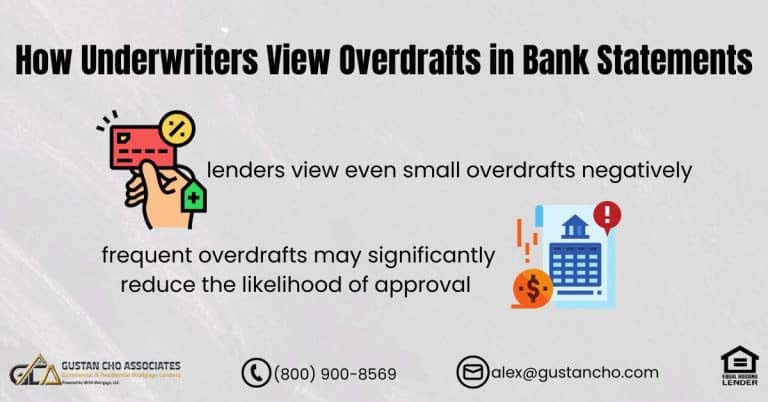In this blog, we will be covering the difference between conditional mortgage approval versus pre-approval during the mortgage process. There are several stages in the mortgage approval process. When a home buyer is ready to start shopping for a home, they consult with a lender. A loan officer will qualify the home buyer and see if they qualify for a loan program.
Steps In The Mortgage Process
There are steps in qualifying borrowers. Every mortgage company has its own way of qualifying borrowers. Over 75% of borrowers at Gustan Cho Associates are folks who either have gotten a last-minute mortgage loan denial or are stressed during the loan process with their current lender. In this article, we will discuss and cover the Difference Between Conditional Mortgage Approval Versus Pre-Approval.
The Main Reason For Stress During The Mortgage Process
There is no reason why borrowers should get a loan denial or stress during the mortgage process. The main reason for a loan denial or stress during the mortgage process is that the borrower was not properly qualified by their loan officers and issued a pre-approval letter pre-maturely.
Homebuyers trust their loan officers and with a pre-approval letter, borrowers often think they are 100% pre-approved and that they will close on their home loan on time. Unfortunately, not all pre-approvals are created equally. All pre-approvals at Gustan Cho Associates are Conditional Mortgage Approvals which means it has been fully underwritten and signed off by an underwriter. This is not normally the case with other lenders.
Issuing Conditional Mortgage Approval Versus Pre-Approval
Pre-Approvals are signed off by loan officers at many mortgage companies. Mortgage Brokers are not lenders and cannot issue pre-approvals. However, many loan officers who are mortgage brokers sign off on pre-approval letters. In this article, we will cover and discuss the Difference Between Conditional Mortgage Approval Versus Pre-Approval.
Steps Leading To Conditional Mortgage Approval Versus Pre-Approval
The ultimate goal is to get a clear to close. A clear to close is that the mortgage loan has been totally approved and the lender is ready to prepare docs and fund the loan. Once the lender issues a clear to close, the next step is to have the mortgage documents prepared. Closing Docs are sent out to the title company along with the wire.
The Strength and Validity of a Conditional Mortgage Approval Versus Pre-Approval
A conditional mortgage approval versus pre-approval is somewhat of a promissory. The lender will issue a clear to close as long as the borrower can clear all the conditions the mortgage underwriter is requesting. Conditional mortgage approval is by no means a guarantee of mortgage approval. It is only a guarantee of mortgage approval as long as the conditions requested by the mortgage underwriter can be satisfied. In the event, that the conditions cannot be provided and signed off, the conditional approval is null and void.
Examples Of Conditions Requested By Underwriter
When a mortgage underwriter issues a conditional mortgage approval, some of the conditions may be the following:
- Updated bank statements and paycheck stubs
- Verification of Employment and Verification of Rent
- Appraisal review and termite inspection report
Letter of Explanations Requested By Mortgage Underwriters
Letters of explanation concerning the following:
-
- Credit Inquiries
- Bankruptcy
- Short sale
- Deed in lieu of foreclosure
- Short sale
- Employment gaps
- Recent late payments
- Compensating factors
- Discrepancies on the credit report
- Divorce
- Extenuating circumstances
- Decreasing and/or Increasing Income
- Gaps In Employment
- Overdrafts
- Discrepancies
- Additional questions and/or discrepancies requested by a mortgage underwriter
- Proof of funds for the down payment and closing costs
- Irregular deposits and letters of explanation on deposits over $200
Providing Underwriter’s Conditions
Once the conditions from the underwriter have been met, a senior underwriter will review the final conditions. Additional conditions can be issued. Once the conditions have been met, some lenders will have a Quality Control underwriter, QC, go over the file. This extra step is done to make sure everything the underwriter has not made any mistakes.
Final QC Underwriter Review Prior To Clear To Close
During the QC underwriting process, a soft credit pull can be processed to make sure the borrower’s debt-to-income ratios are in check and no surprises have surfaced. The QC process normally takes no longer than 24 to 48 hours. Once QC is satisfied, a clear to close is the issue and the mortgage loan is ready to fund.
Strength and Assurance of Conditional Mortgage Approval Versus Pre-Approval
Over 75% of our borrowers are folks who either have gotten a last-minute loan denial or are stressing during their mortgage process with their current lenders. Home Buyers interested in shopping for a home or homeowners needing refinancing and who need to get qualified with a national mortgage company with no lender overlays on government and conventional loans can contact us at Gustan Cho Associates at 800-900-8569. Or text us for a faster response. Or email us at gcho@gustancho.com.
All of our pre-approvals are full credit approvals at Gustan Cho Associates conditional mortgage approval versus pre-approval that is fully underwritten and signed off by our mortgage underwriters. This is the reason Gustan Cho Associates Mortgage Group is able to close 100% of all our pre-approvals. Not just close but close them on time. We are available 7 days a week, on evenings, weekends, and holidays.
This blog on conditional mortgage approval versus pre-approval was updated on September 2nd, 2022










